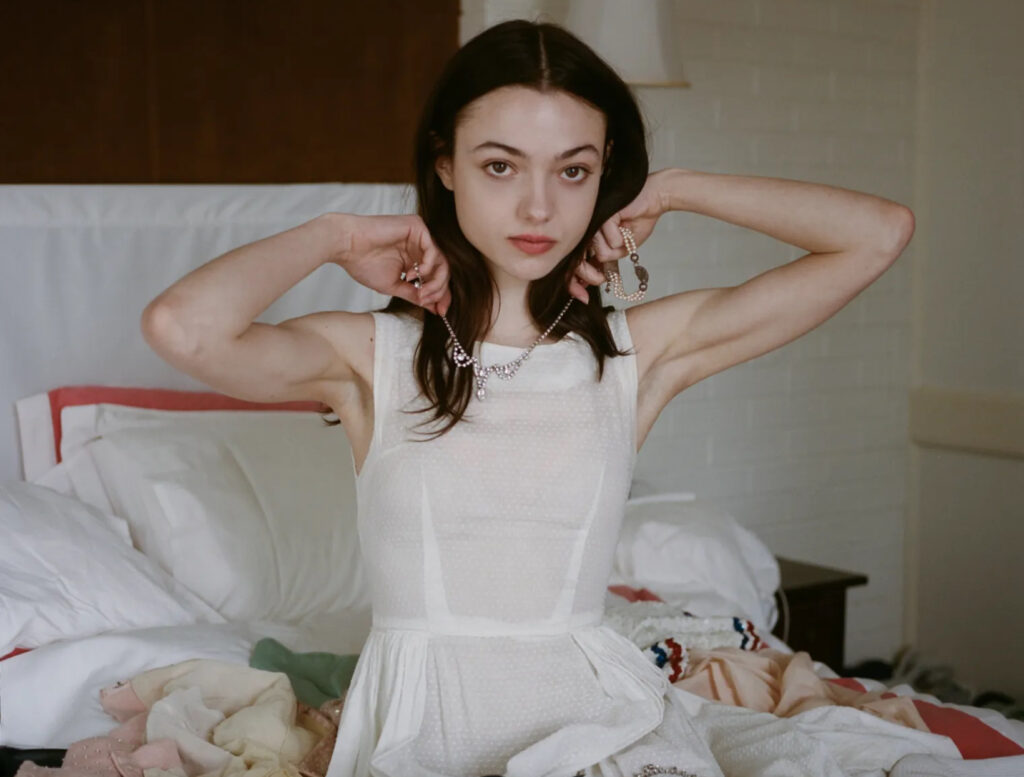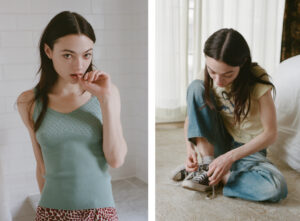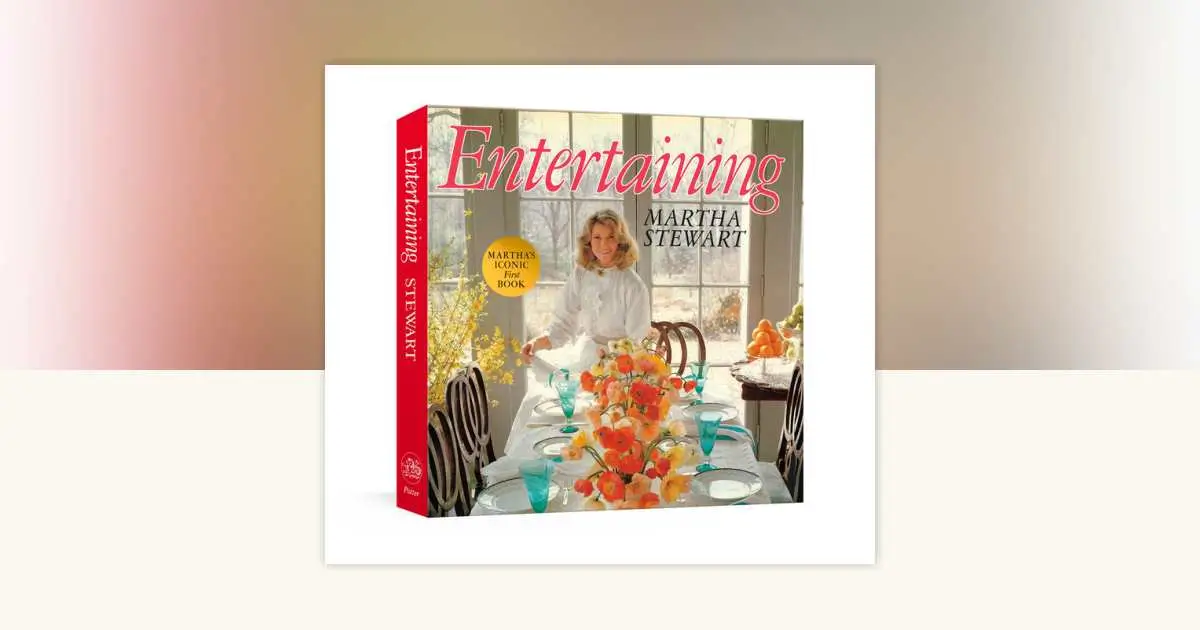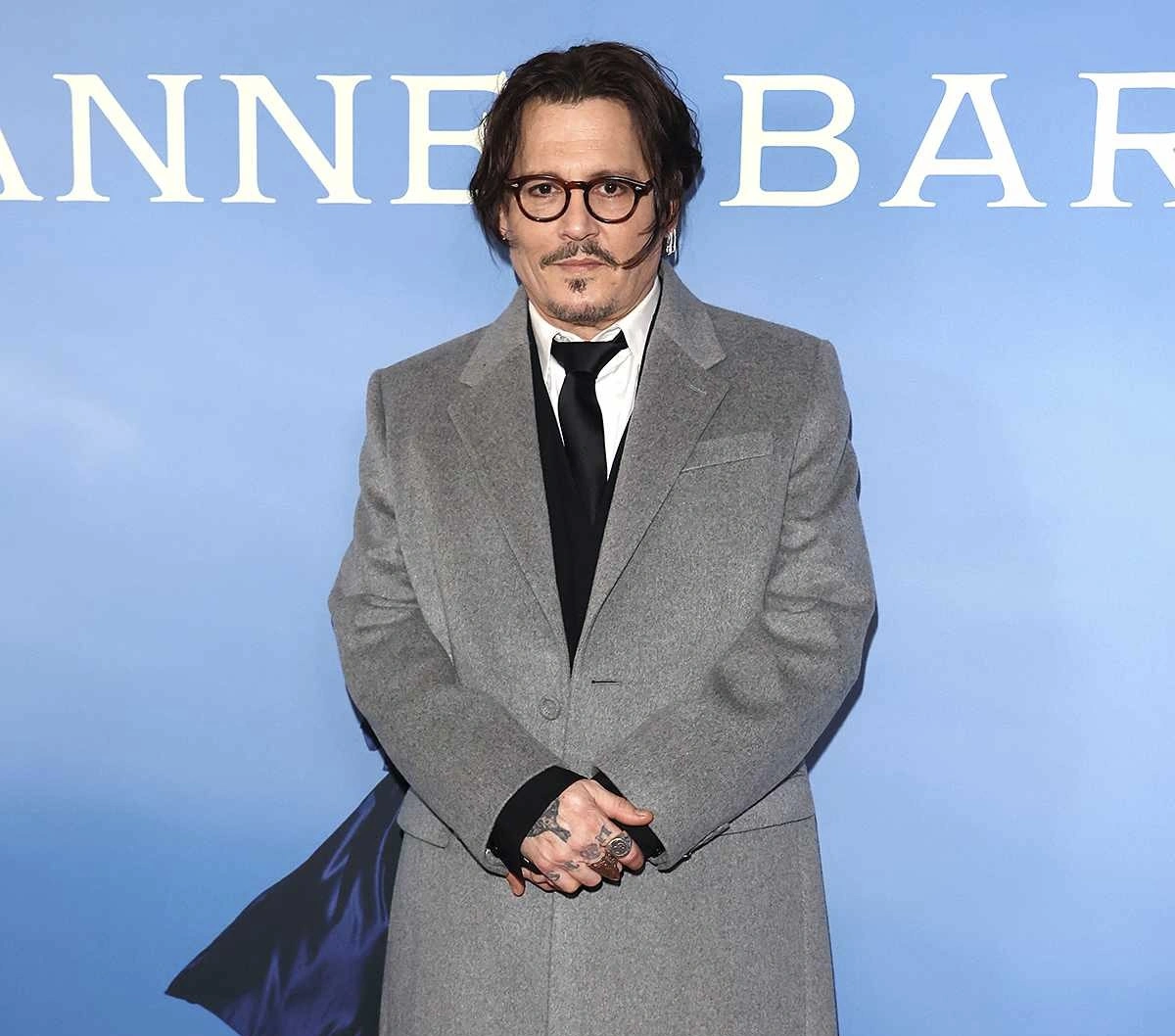The rising actress reimagines youth, ambition, and the thrill of contradictions in her latest role—and in life.
Lily McInerny’s story reads like a carefully scripted film set in New York City—except she lived it. The 26-year-old actress grew up in Manhattan’s Greenwich Village, surrounded by artists, ambition, and the sort of spontaneous culture that only a few zip codes in the world can offer. Her father, a fiction writer who stayed home to raise her, fostered an early appreciation for storytelling. Her mother, a marketing professional in fashion and jewelry, passed on a sharp sense of aesthetics and personal style.
“I inherited my love of fashion from her,” McInerny says, perched on a window ledge of her Brooklyn apartment, one leg tucked under the other. She’s wearing a loose Celine blouse—she’s not just a fan of the brand but a friend to the house. Her look is casual, unfussy, thoughtful. It fits her.
At eight, McInerny landed her first role in a Children’s Aid Society production of Peter and the Wolf. She played Peter. “It was the first time I realized I could be someone else without losing myself,” she recalls. “I wasn’t just pretending. I was discovering.” That production didn’t just launch a childhood hobby; it planted the roots of a career. And like many New York kids with a pull toward performance, McInerny found herself at LaGuardia High School on the Upper West Side, a famed incubator for actors, dancers, and musicians. There, she honed her skills amid rigorous arts coursework and the pressure-cooker energy of driven teenagers. “You’re surrounded by kids who all think they’re going to make it,” she says. “Some of them do. Some of them are brilliant. Some of them crash hard. But it teaches you how to take yourself seriously, and how not to.”
It was during these years that she spent occasional afternoons with Durga Chew-Bose, a close friend of her family and a figure McInerny describes as “quietly magnetic.” Chew-Bose, a writer known for her lyrical essays and a keen cultural eye, was beginning to move into film. “She always had this way of noticing what others miss,” McInerny says. “I think that’s why she ended up seeing something in me before I could.”
More than a decade later, that instinct would lead Chew-Bose to cast McInerny as the lead in her feature directorial debut: a modern adaptation of Françoise Sagan’s Bonjour Tristesse. Sagan’s novel, written in 1954 when she was just 18, tells the story of Cécile, a teenager navigating the moral and emotional chaos of an idle summer in the South of France with her libertine father and a poised, judgmental visitor.
Chew-Bose’s adaptation doesn’t mimic the original’s mid-century glamor. Instead, it transposes the characters into a present-day coastal retreat—less Riviera, more ambiguous Hamptons. The sun is still blinding, but the shadows are longer. Claes Bang plays Raymond, Cécile’s dissolute and charming father; Chloë Sevigny is Anne, the interloper whose presence threatens the fragile balance of Cécile’s hedonistic world.
“Cécile is a character full of contradictions,” Chew-Bose says. “She’s perceptive but reckless. She’s still a girl, but she thinks like a woman. Lily gets that. She listens with her eyes. Her steadiness isn’t stiff—it comes with this lightness, this sweetness, that I find really compelling.”
McInerny’s performance is understated but razor-sharp. She doesn’t push emotions to the surface; she lets them flicker beneath her expression like a warning light. In one scene, Cécile watches her father flirt with Anne over dinner. She says nothing, just tilts her head slightly and tightens her jaw. It’s a small gesture, but it lands hard.
“I think Cécile is someone who’s pretending to understand things she doesn’t yet have language for,” McInerny says. “There’s a danger in that. But there’s also beauty in it. She’s forming herself in real time, under pressure.”
The film is as much about tone as it is about plot. Long silences, glances, and withheld reactions fill the screen. “It’s like jazz,” McInerny explains. “It’s about what you don’t say, and how long you can sit in that silence before it breaks you.” She credits Chew-Bose for creating a set environment that encouraged that kind of subtle, intuitive work. “Durga never asked for ‘more.’ She asked for ‘less, but clearer.’ That’s scarier. And better.”
The trust between director and actor is evident. Chew-Bose didn’t audition other actresses for the part. She simply asked McInerny if she wanted it. “It’s so important to me to work with artists who really want to be there,” Chew-Bose says. “Lily is an all-in person. No calculation. No ego. Just the work.”
That phrase—“all in”—resonates with McInerny. “You don’t get to do something like this halfway,” she says. “Especially not with a character like Cécile. She demands your confusion. You have to let her mess with your boundaries.”
After filming wrapped, McInerny spent a few weeks decompressing in the Catskills. “I needed to get back into my own head,” she says. “It’s weird when you carry someone else’s emotions for that long. They start to color your real life.” But she doesn’t sound drained. If anything, she’s energized by the immersion.
Asked what comes next, she shrugs lightly. “I want to do something totally different. A comedy, maybe. Something dumb and fast and alive.” But even as she speaks it, she admits she’s still drawn to the layered, contradictory roles—the ones that require more than just showing up. “I like characters that ask me to do things I haven’t done before,” she says. “Or things I didn’t know I could do.”
For now, she’s enjoying the quiet buzz surrounding the film, which is making the rounds at festivals and earning early praise. But she isn’t chasing momentum for its own sake. “I’m not in a rush,” she says. “I want to build something that lasts.”
She glances out the window, toward a sliver of skyline between buildings. “I grew up around stories. They were everywhere. I still want to tell them. I just want to make sure they’re the right ones.”
No comments yet.









